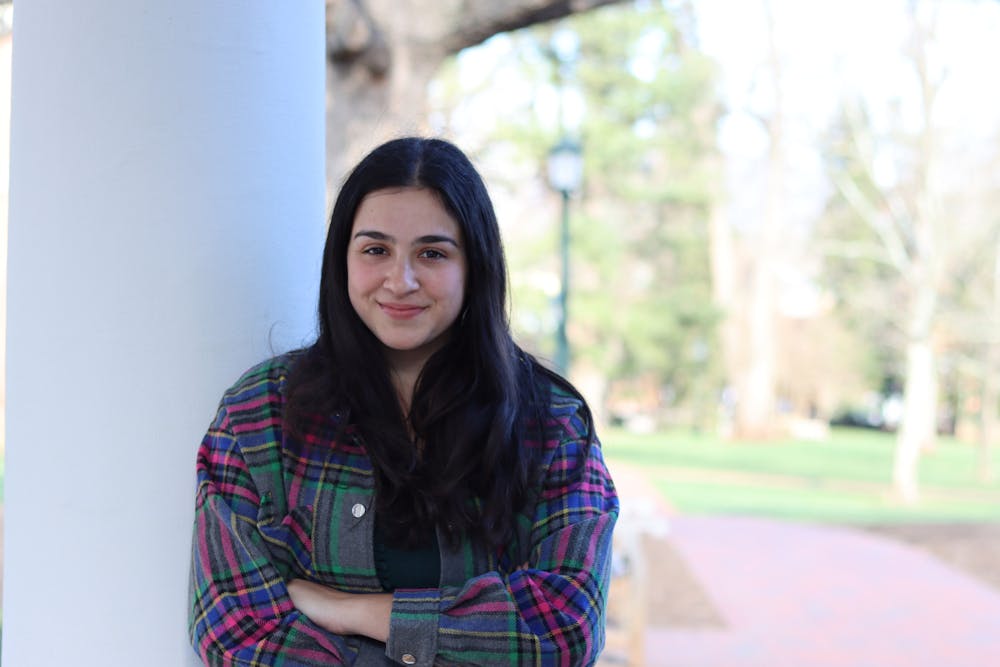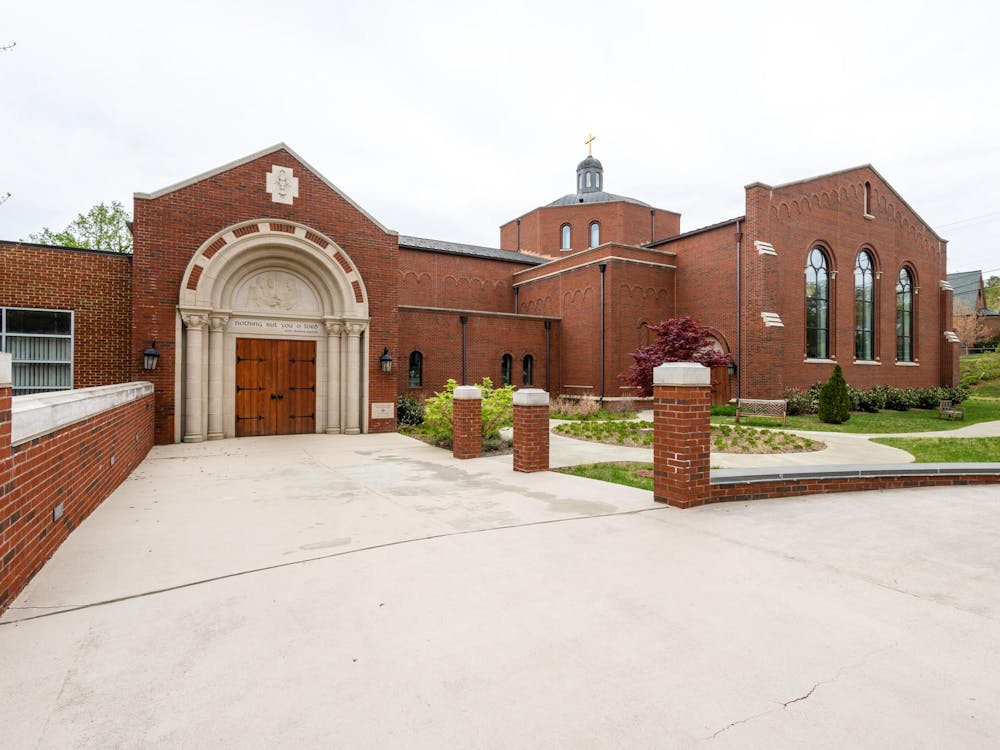Third-year College student Lisa Kopelnik was voted in as the next student member of the Board of Visitors at their March 1 meeting. Kopelnik, who currently serves as the chair of the University Judiciary Committee, will also continue as a UJC representative for the College after her tenure as chair ends April 7. Though it is a non-voting role, the student member of the Board is tasked with representing the entire student body, including undergraduate, graduate and professional students.
Kopelnik, third-year College student and Jefferson Scholar, said she has had an interest in politics and law from a young age. As the youngest UJC chair in recent history, Kopelnik said that student self-governance’s prominence at the University has stood out to her throughout her time on Grounds and was a main reason that she decided to apply to be the student member on the Board.
“In other [universities] … students are turned away left and right in institutional policies and political conversation,” Kopelnik said. “It struck me that at U.Va., that’s not always the case, and more often than not the student voice is put in high value.”
Prominent student self-governance organizations at the University include the UJC and the Honor Committee — who serve as judiciary panels overseeing trials for alleged disciplinary and honor-related infractions, respectively — in addition to Student Council, which represents student interests to University administrators and provides a range of services to support students.
During the application process for becoming the student member on the Board, Kopelnik said that the priorities she shared with the Board and the student panel that interviewed her centered around three values — political discourse, diversity and student health and safety.
Kopelnik said that political conversations with her parents, Ukrainian-Jewish immigrants with different political leanings, shaped her values and beliefs to prioritize civil discourse and free speech. She said she worries that polarization and an inability to have political discussions might threaten the existence of diverse student opinions and perspectives at the University.
“I worry that we’re seeing a really polarizing and divisive environment that has spread on college campuses everywhere,” Kopelnik said. “I worry that that will come at the cost of our values at U.Va., which is freedom of expression, but also academic inquiry, curiosity and respect.”
Kopelnik also spoke to diversity as one of her priorities and said there is a specific need for more socio-economic diversity at the University, especially following the end of affirmative action in the college admissions processes.
“We’re again at a pinnacle where we’re deciding what admissions will look like and I think there needs to be a reenergized focus on bringing in diverse people from diverse backgrounds, especially in regards to class at U.Va.,” Kopelnik said. “It’s about not only doing targeted outreach, but also facilitating an environment at U.Va. that is accessible to low-income students.”
Kopelnik’s final priority centers around student safety at the University, as she said that she is concerned about the rise in mental health crises among students. Kopelnik said she hopes that she can help the Board enact different safety measures for students and also hopes to work more with community members, nonprofit organizations and the local police department to improve community safety.
Kopelnik also addressed concerns about the state of student self-governance organizations, as well as their relationship with the Board and the University administration. Within the University administration itself, there has been significant turnover in top administrative positions, leaving student self-governance organizations with less time to develop relationships with administrative leaders. Despite the challenges that students in these organizations face, Kopelnik said she is optimistic about the future of student self-governance due to its growing support in recent years. She cited rising turnout in some recent student elections, including the Honor Committee’s multi-sanction constitutional referendum last year, which replaced the centuries-old single sanction with a multi-sanction Honor system.
Kopelnik noted that student self-governance is an imperfect administrative mechanism, but she said that preserving its principles at the University is an important responsibility for University students.
“I think we need to be honest about the downsides and criticisms that we face with student self-governance and recognize that we make mistakes, that we can make a wrong decision, but that doesn’t necessarily undermine the principles of student self-governance," Kopelnik said. "We have the right, the obligation and the duty to serve the University and to control our experience with the University.”
While Kopelnik’s role as the student member on the Board will allow her to advise Board members on their decisions, Kopelnik will not be allowed to vote on action items presented during meetings.
Kopelnik will officially succeed current student member Lillian Rojas when the Board convenes June 6-7.







